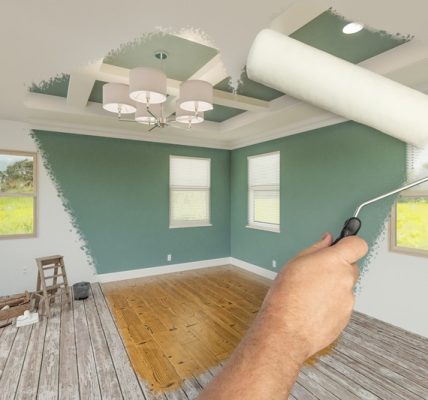Ensuring the health and safety of your family begins with the quality of your drinking water. Treated municipal water still contains impurities and chemicals that may impact your health and well-being. Filtering your home’s tap water can reduce these impurities, providing myriad benefits – from safeguarding your health to protecting your appliances and even improving the taste of your water.
Health Benefits of Water Filtration
One of the primary reasons to filter tap water is to remove potential contaminants that could affect your health. These contaminants may include:
-
Chlorine, which is used in municipal water treatment to disinfect but may have harmful long-term effects.
-
Heavy metals such as lead, which can leach from old pipes and pose serious health risks.
-
Microorganisms that might elude the disinfection process, leading to waterborne illnesses.
By filtering tap water, you ensure these contaminants are significantly reduced or eliminated, resulting in cleaner, safer water for you and your family.
Environmental and Economic Advantages
Bottled water is often a go-to solution for clean drinking water, but it has dire environmental and economic repercussions:
-
Plastic bottles contribute to pollution and waste.
-
Bottled water is more expensive over time compared to using a home water filter.
Investing in a water filtration system curtails the reliance on bottled water, reducing environmental impact and saving money in the long run.
Extending Appliance Life
The length of time that home appliances last is important. When we use appliances like dishwashers and water heaters, they can become less good at their job over time if they are not taken care of properly. Water with calcium and magnesium, known as “hard water,” can make this problem worse. But, if we use a good filtration system, we can stop this from happening as quickly.
Preventing Scale Buildup
“Scale” is a word for the build-up that happens inside appliances when they use water with lots of minerals in it. A filtration system can stop this scale from forming because it takes away these minerals from the water. This keeps your appliances working well for longer.
-
Reducing Scale in Pipes and Appliances: When scale forms, it can cause blockages and make your appliances need more energy to work. A filter helps to maintain the cleanliness and efficiency of these machines by preventing scale from ever building up.
-
Cleaner Water for Appliances: Having clean water can also prevent damage to appliances. When devices work with water that has fewer minerals, they tend to have fewer problems, which means they do not break as often.
Lowers Repair Costs
Machines and appliances need to be fixed sometimes. However, using clean water means they do not need to be repaired as much. Filtered water is gentler on your appliances, meaning you do not have to spend money to fix them as often.
-
Lowering Repair Costs: When appliances work better and have fewer issues, you do not need to pay for repairs as often. This is a benefit of using filtered water, as it can reduce the chances of your appliances needing repairs.
-
Extending Appliance Life: Using a filtration system can make your appliances last longer. This is good because it means you do not need to buy new appliances as often, which can save you a lot of money over time.
Improved Taste and Odor
Unfiltered tap water can carry an unpleasant taste or odor, often due to chlorine and other chemicals. Filtered water, on the other hand:
-
Improves the taste by removing chemical contaminants.
-
Eliminates odors for a more appetizing drinking experience.
-
Enhances the flavor of cooked foods and beverages where water is a key ingredient.
With better-tasting water, your daily hydration becomes a more enjoyable habit, and the food you prepare may taste better, too. Understanding the different types of water filtration products available for home use is essential in choosing the right one for your needs.
Maintaining Water Filter Performance
To ensure optimal performance, maintenance of your water filtration system is crucial. This includes:
-
Regular filter replacement according to the manufacturer’s recommendations.
-
Periodic system inspections to prevent malfunctions.
-
Cleaning and sanitizing the system components as needed.
Maintaining your water filter keeps it working effectively and extends its useful life, ensuring the quality of your drinking water remains high. Additionally, whole home water filters are integrated into your home’s water supply to ensure that all water outlets dispense purified water. Such a system is most beneficial for a comprehensive solution to water quality concerns.
Choosing the Right Water Filter for Your Home
When you’re ready to invest in a water filtration system, take the following steps:
-
Test your water to identify contaminants and understand your specific filtration needs.
-
Research the different types of filters available, taking into account your household size, water usage, and budget.
-
Look for certifications from independent organizations that verify the filter’s effectiveness.
Choosing the right system can vastly improve the quality of your tap water and the overall health and well-being of everyone in your home. Products like faucet-mounted, under sink drinking water filters, or countertop models offer various levels of filtration and installation flexibility. They can remove different types of contaminants depending on the technology used, such as activated carbon or reverse osmosis.
To End
Many benefits come from filtering your home’s tap water—ranging from health and environmental benefits to economic savings and appliance longevity. With the various types of filters available, including faucet-mounted, under-the-sink, and whole-home filtering systems, it’s within reach to find one that fits your needs and guarantees consistently clean, safe, and delicious water flowing from your taps. Protect your family, your wallet, and the planet by prioritizing the purity of your home’s water supply.









